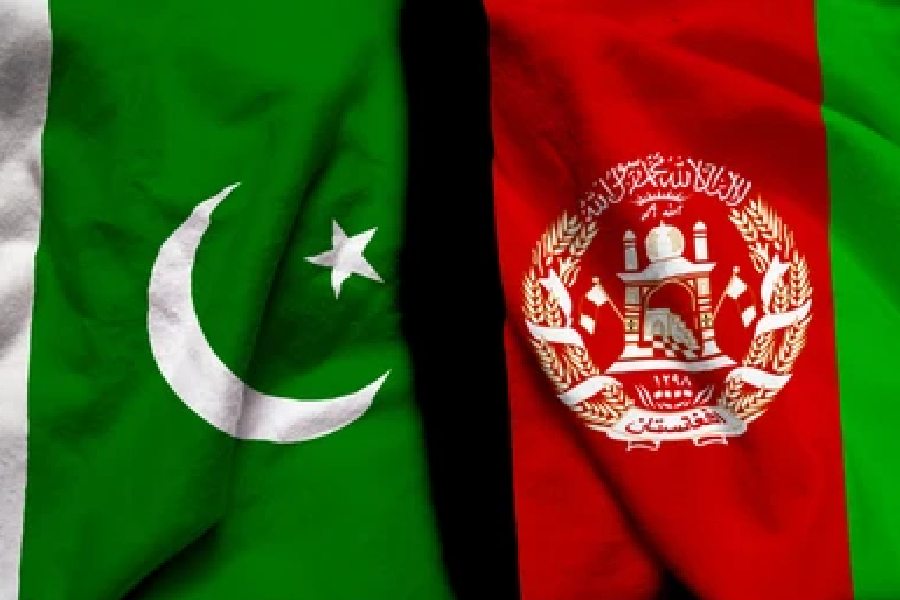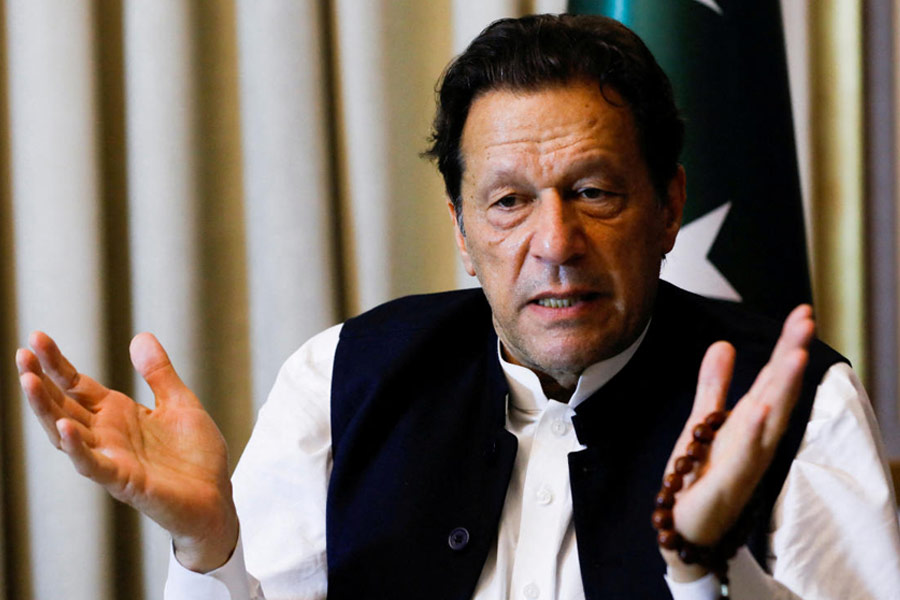A senior Afghan Taliban leader is expected to arrive in Islamabad early next month, while a leading Pakistani cleric is set to visit Kabul in a fresh bid to reduce bilateral tensions over the outlawed terror group TTP, media reports said on Sunday.
Pakistan has consistently called for Afghanistan's Taliban government to take decisive action against the Tehreek-e-Taliban Pakistan (TTP) and related militant groups operating from Afghan soil, including extraditing leaders responsible for attacks in Pakistan.
The Taliban government, however, has been hesitant to comply because of historical alliances and ideological ties.
The visits are part of efforts to reduce tensions between Kabul and Islamabad concerning the outlawed TTP, which intensified attacks against the security forces in Pakistan in the wake of the Taliban taking over Afghanistan more than two years ago.
Mullah Sherin Akhund, a senior Afghan Taliban figure and governor of Kandahar province, is expected in Islamabad early next month.
The interactions of Sherin will include meetings with intelligence and Foreign Office officials in Islamabad.
Meanwhile, Maulana Fazlur Rehman, a Pakistani politician who is the president of the Jamiat Ulema-e-Islama Fazl (JUI-F), will interact with senior Taliban leaders in Kabul.
Mullah Sherin has played various roles in the group’s military and political spheres, the Dawn newspaper reported.
His close ties to the senior leadership and involvement in significant Taliban activities make him a prominent and influential member of the Afghan rulers’ leadership structure.
He has previously engaged with Pakistan and is known to have liaised with the TTP on behalf of the Taliban administration. The exact date of his visit is not yet known.
Fazl is set to travel to Kabul on January 3 with a delegation of religious scholars, a source told The Express Tribune newspaper.
In a telephonic conversation, the source told the newspaper that the Ministry of Interior and the Foreign Office finalised the arrangements for various meetings, focusing primarily on addressing the TTP issue and resolving tensions between Kabul and Islamabad.
The strategy reportedly involves leveraging religious influence to meet Islamabad's demands.
It is anticipated that the religious scholars, under the leadership of Fazl, will engage in private discussions with representatives of the TTP.
The aim is to formulate the framework for dialogue and gather perspectives on a range of topics, the source added.
His delegation will comprise religious scholars from diverse regions, including Khyber-Pakhtunkhwa, Balochistan, and Karachi. Pakistan and Afghanistan have developed differences over the treatment of TTP, with the former blaming the interim Afghan government for not cooperating to eliminate the threat of militancy emanating from its soil.
The Dawn newspaper reported that during a conversation with Senator Mushahid Hussain in Tehran, Taliban Foreign Minister Mullah Muttaqi highlighted the lack of high-level communication between Islamabad and Kabul, leading to mutual allegations and a blame game.
The Taliban’s return to power in Afghanistan in August 2021 initially appeared promising for managing the TTP issue.
The Afghan Taliban facilitated meetings between the Pakistani military and the TTP, resulting in a ceasefire agreement and Pakistan releasing senior leaders of the outlawed group.
However, the ceasefire was short-lived due to ongoing skirmishes and the TTP’s unilateral termination of the agreement.
Except for the headline, this story has not been edited by The Telegraph Online staff and has been published from a syndicated feed.











